The Trust Manifesto: Increasing Trust In A Trustless World…
BP spills oil in the gulf and is incompetent at cleaning it up.
Children are abused and church officials cover it up for decades.
Companies responsible for the economic collapse not only thrive but report record incomes and bonuses.
Everyday, it seems like the majority of new stories all have the same theme…
…you can’t trust anyone.
This is a real problem when you’re trying to run a business. The hallmark of capitalism is strangers trusting each other so business can be accomplished. If there is no trust, there is no business.
There seem to be three reactions to this societal sea-change.
The first, which a lot of large companies seem to do with ease is, ignore it. Continue buzzing along without a concern in the world. See Goldman Sachs with its constant announcements of bonuses and its ever-smiling CEO.
The second reaction, also favored by clueless large companies is to spend ungodly amounts of money advertising falsehoods about how what people think of your company is wrong and that you’re really warm and cuddly. Look at this ad as a great example of this approach:
The third, and I would argue, the most successful approach is to address this problem head-on, with authenticity, a surprising lack of bulls***t and passion. And that’s what this blog post is all about…
The Trust Manifesto…
So how do you overcome the suspicions of people and convince them that you are worthy of their business?
I see businesses that are successful succeeding with a few very specific strategies. Here they are:
1) Be Passionate: There’s nothing more appealing that someone who is passionate about what they do. Even if you think someone is on the crazy side of passionate, you know where you stand with someone who’s passionate.
A great example of a company whose passion is on their sleeve is the great local restaurant, the Linkery. Not only is this restaurant one of the best in the country (in my opinion and many others) but they take passion for organic and local food to crazy lengths. Visit their site. You’ll see a menu full of details. Where did they source the pork you’re about to eat tonight? It’s there. Where did they source the green beans? It’s there. Even the text at the top of the website is simple, clear and unambiguous.


Is it hard to figure out that these people are really passionate about the sh*t they do? I don’t think so. If you’re debating what restaurant to eat and you’re passionate about what the Linkery is passionate about, are you going to go to a generic restaurant or one who goes out of their way to display their passion? I think the choice is clear.
2) Be Generous: So many companies today seem to want to add “fees” and “late charges”. It seems like credit card companies, banks, Ticketmaster and a whole slew of other companies love to not only stick it to their customers but go out of their way to make sure their customer knows what’s happening with late fees, service fees. The feeling is that there’s no attempt to do anything more than suck as much revenue from your customers as possible.
So the simplest way to combat this? Be generous. Don’t charge for everything. Have you ever been to a restaurant where they gave you a free appetizer or a free drink that you didn’t expect? It’s nice right? Do that. What can you give away even before a customer does business with you?
A great example of a company who gets this is Zappos.com, which was recently acquired by Amazon.com for $1.2 billion.
Zappos.com was originally setup to sell shoes over the Internet, an idea fraught with problems on first-glance. Shoes are the ultimate non-Internet product when you think about it. Just like clothes, you have to try them out in person. Some shoes fit funny. Others don’t look good. It shouldn’t work right?
And that’s where Zappos.com’s approach is so unique. Not only will they give you free shipping (a standard item today) to your place but if you buy your shoes and don’t like them, they’ll pay for shipping back.
As I understand, Zappos.com spent very little money on advertising, instead relying on word of mouth. They train their customer service reps to be obsessed with customer satisfaction and it’s paid off. The tipping point, from what I’ve read, is one customer service rep who was so generous and caring that it spread like wildfire. It started simply enough…
…a woman called to return the shoes she had bought. The customer service rep spent time getting to know the customer and it turned out that she had bought the shoes for her ailing mom. A few days later, by the time the shoes came, her mom had passed. The woman was understandably upset but returning the shoes was something she needed to get done during the midst of her grief.
The customer service rep not only arranged for the shoes to be picked up but a week later, sent flowers to the woman and followed up by phone to see how she was. The customer was so moved she told everyone she knew, who then told everyone they knew etc.
Could anyone argue that sending flowers to this customer was “in the budget” or “justifiable”? No and that’s the point. It was generous and decent. And it made Zappos.com what is today.
3) Be Bold: Boldness is scary to middle managers. The folks who make sure people all the employees say the same things are scared to death of the rough edges that boldness brings. The in-house counsel who kills products before they hatch is also scared to death of boldness. But it’s something that will help establish trust in this very un-trusting world.
A company that really nails this time and time again is Apple. In a world favoring transparency and openness, Apple remains a sphinx, completely paranoid about leaks. Yet that’s who they are. They don’t pretend to be anything else but that. They know how good their products are; they’ll wait until you realize it.
Their products are different, bold and inspire debate. When hanging out with friends the week the iPad was launched, we spent 45 minutes debating whether or not it was a product that we should buy. Has anyone in the history of the world had that conversation about the product designed to “kill” the iPod, Microsoft’s Zune? Hell no.
There’s nothing half-way in Apple’s approach. They piss people off. Their products are unlike other products. They follow their own crazy beat. And that’s why people trust them.
The Point…
People want to believe in something. They want companies they can champion. They want experiences that are amazing and human. They want to work with your company. You just have to give them reasons to trust you. Once you have it, don’t break that trust.
While big companies have the resources to buy television ads they convince themselves will buy them trust, that’s not a good long term strategy. You can’t spend your way out of the economic pickle we all find ourselves in. The only way through is trust. Period.








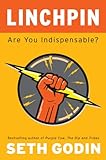
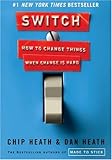





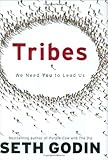
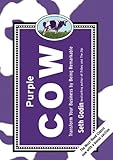


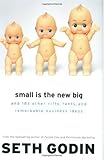

Leave a Reply